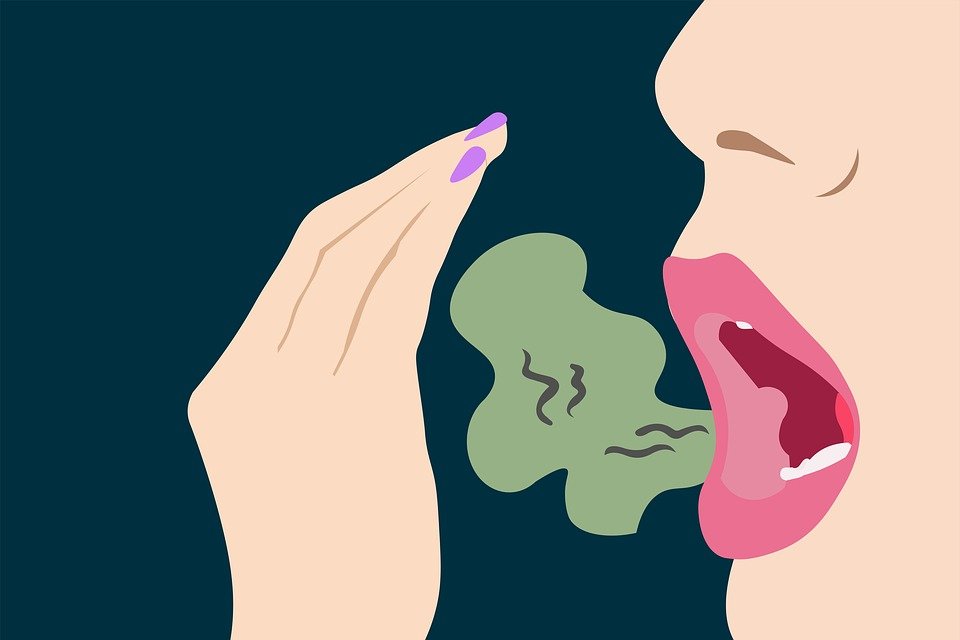Bad breath or Halitosis is a common problem and maybe distressing or unpleasant at times. Read the article to get to know the ways to prevent bad breath. The age-old problem plagues some 25-30% of the world’s population and has many causes, but in an estimated 85% of the cases, the odor originates from the mouth: dental cavities, untreated gum disease, poor oral hygiene, and coated tongue due to inflammation, which are among the most common causes that create sulfurous smells. Other causes that contribute to bad breath include malnutrition, uncontrolled diabetes, infections such as sore throat or sinusitis, intestinal disorders such as heartburn and ulcers.
Preventive care is the preferred way to keep your teeth and gums healthy. Whatever the cause, treatment involves correcting the underlying disorder and perhaps trying a few easy solutions and simple tricks to help fix the problems. Follow these tips to prevent bad breath in its tracks.
Ways To Prevent Bad Breath
-
Proper Oral Hygiene
Maintaining good oral hygiene, brushing and flossing at least twice a day is essential to combat bad breath. Brush either right before you eat or one hour afterward to avoid damaging or eroding the enamel of your teeth. Make sure to clean your tongue, because your tongue gets a lot of build-up of halitosis-causing bacteria. Flossing also rids the mouth of food particles and debris that are left between your teeth which can otherwise rot and smell bad. Once in awhile, brush your teeth with baking soda that will help neutralize the bacteria that build upon the backs of your teeth and beneath your tongue.
-
Get Dental Check-Ups Regularly
Most of the time you can prevent bad breath by good oral health and it’s important to have your teeth professionally cleaned at least 3 times a year. A dentist will perform a thorough cleaning of your teeth, gums, and mouth, and will notice if your bad breath is caused by something more serious than simply food or drink, or not having brushed properly. If you think you have constant bad breath, keep a tap on the foods you eat and make a list of medications you take. Some prescribed medications may play a role in creating mouth odors.
-
Avoid Dry Mouth
To keep your mouth hydrated at all times, avoid tobacco and drink plenty of fluids. Cut down on diuretics such as coffee, black tea, soft drinks and alcohol that increase fluid loss and lead to dry mouth. Regular water intake will not only prevent lingering food particles from sticking but also fend off the dry mouth.
-
Watch your Diet
Adjust your diet to avoid strong-smelling foods such as onions, radish, garlic and other spicy foods that are some of the worst offenders. Consuming a lot of sugary foods is also linked with bad breath. Include more raw vegetables and herbs like celery, carrots, parsley, and apples, whose higher water content will help flush your mouth of debris.
-
Change your Toothbrush often
Regularly get a new toothbrush when it becomes frayed, about every 3-4 months, and use a soft-bristled toothbrush.
-
Chew the Right Thing
Chewing or sucking on a piece of sugarless candy or sugar-free gum post your meals can freshen up your breath and help stimulate saliva flow so your mouth can naturally flush out bacteria and food particles. Be watchful of mints that are loaded with sugar which may mask bad breath temporarily, but will eventually stick to your teeth and elevate the problem.
-
Eat Foods Rich in Fiber
Add more fiber-rich food like sprouts, raw salad and green leafy vegetables like carrot, a stick of celery or a fresh sprig of parsley or basil. The chlorophyll in these veggies neutralizes odors and steps up your saliva flow between meals to help wash away bacteria from teeth, tongue, and gums and prevent bad breath. Munching on these snacks between meals can also help alleviate bad breath caused by hunger or fasting since an empty stomach can cause foul breath as acids in the stomach build up. Alternatively, chew a piece of lemon rind or orange peel for a mouth- freshening burst of flavor. Raw crunchy food like apples contains pectin, which helps control food odors and promotes saliva production.
-
Use a Mouth Rinse
Try a quick rinse with a mix of water and a few drops of antimicrobial peppermint oil or a teaspoon of baking soda. Or rinse your mouth saline water or black or green tea or aloe Vera. This will suppress the growth of bacteria that cause mouth odor. ‘����X��?







